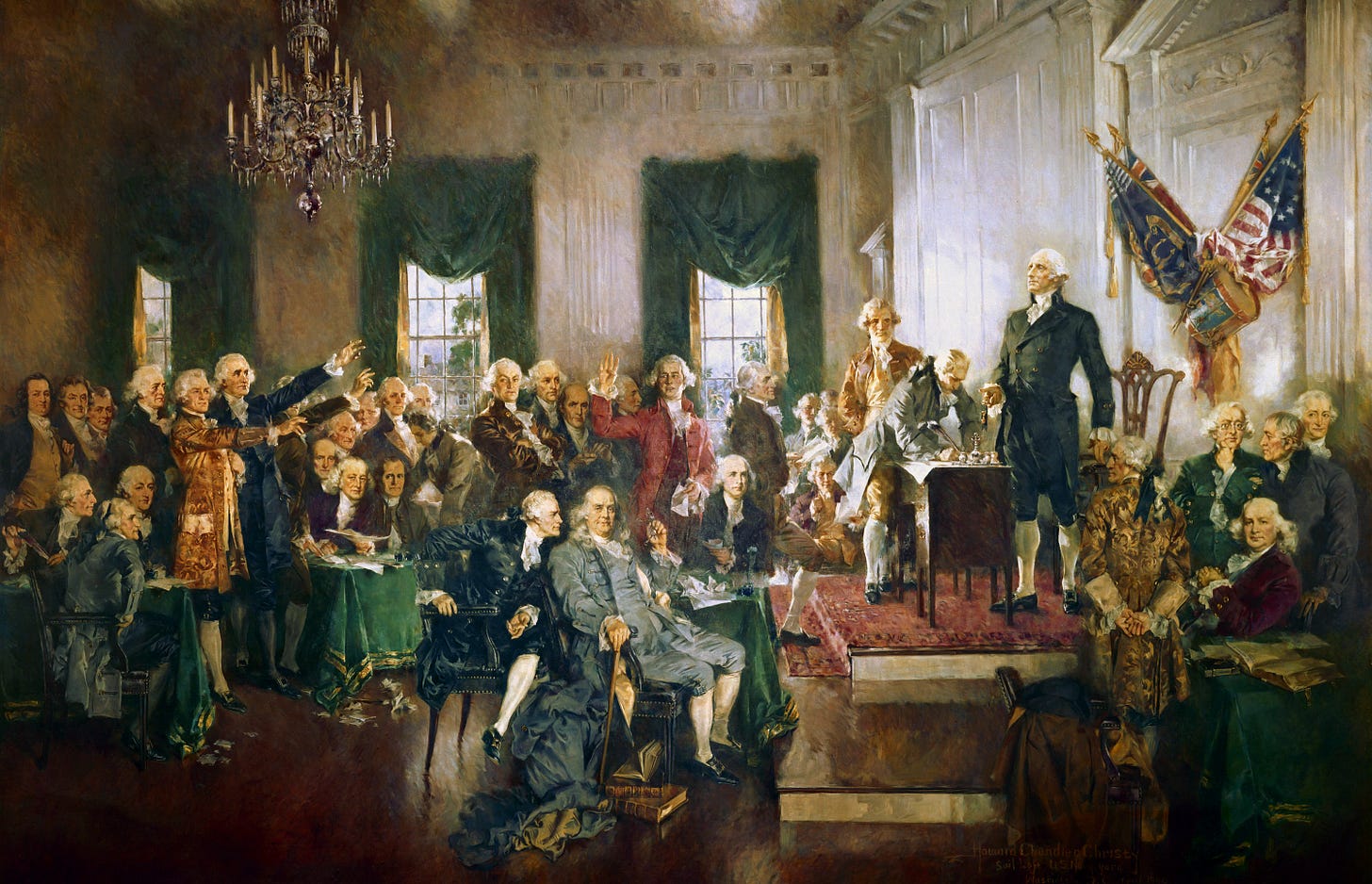I recently took a stab at defining communism in a way that Americans could understand. I said, essentially, communism is when workers own work.
Some commenters say that my definition of communism hews insufficiently to the utopian doctrine of communism as a stateless, moneyless, classless society. Anything less is, by definition, socialism. A half measure at best. My opinion is that the utopian ideal is one fine way of looking at it. But there is more than one way to understand any subject.
The existence of a classless, stateless, moneyless society is not necessarily intended to be the final definition of how we are allowed to use the word communism.
As I said, that definition is aspirational. I use the word "utopian" not to be dismissive, but to contextualize how I believe this definition is meant to be taken.
The pro-capitalists have a utopian vision of their perfect society… it just so happens that we’re already living it! *Rimshot*
But seriously folks…
The capitalist's utopian ideal is perfect markets, where the producer’s selfish maximization of profits meets the consumer’s selfish maximization of preferences. A state of harmony where our society's unlimited need for more perfectly meets our ability to satisfy those desires. A place where the state exists only to support and enable business power.
Now, if I were to say to you that capitalism is only when there are perfect markets and the state exists to support business, that would be a very limiting definition indeed. Because limiting our definition of capitalism strictly to its ideal form renders it useless. Defining capitalism in this way would mean we don't live in any economic system at all!
The rigid definition of communism as a stateless, moneyless society has a similar drawback.
Now people already have a very hard time defining capitalism when you ask them. Essential attributes like the concentration of capital are rarely mentioned. Even though that's why capitalism is designed the way it is… Capitalism is a pyramid scheme because it is designed to enrich the rich. And yet you will never read that in an economics textbook. So the defining shape and function of capitalism currently exists outside the modern definition of capitalism.
Without saying it, most would recognize that capitalism is not just some utopian ideal. Capitalism is what we recognize as the dominant economic system in the United States and all of the nations that we call allies. We can even use the first definition that pops up on Google: Capitalism is "an economic and political system in which a country's trade and industry are controlled by private owners for profit."
It's harder to do that with communism because our collective ignorance is beneficial for those in power. Growing up in this country people are only taught to hate and fear communism... not any of the parts about workers taking control and making decisions for themselves. Because the people who own the places we work don't want us to even know that's part of it.
Perhaps it would be helpful to visualize the difference between capitalism and communism as a spectrum. On one end is capitalist utopia. At the other communist utopia.
Now, our existing system is wayyyyy closer to the capitalist utopia… by design. That has been a defining goal of our government going back before Teddy Roosevelt, before Honest Abe, before Andrew Jackson, all the way back to Independence Hall. The OGs. We love to call them Daddy, our beloved founding fathers! You know, the ones who wrote the Constitution! They wrote it for guys like themselves, the richest dudes on the continent. George Washington was the Elon Musk of his day. Owned more land than any human in the brand new U.S. of A. Trust fund babies, rich merchants, rich slave owners, etc cetera. This country was established to be closer to capitalist utopia.
And any laws that cut taxes on the rich or give business more power (it's sometimes called "freeing the market") get us even closer to capitalist utopia. God bless the USA.
But if this is a spectrum, anything that gets us closer to communist utopia, classless, moneyless, stateless, should be communism. Making worker-owned enterprises more common. Helping workers own their work. Reversing the flow of the capitalist pyramid scheme is communism.
It’s not scary. It’s not a dictatorship. It’s not tyranny. (If you want to talk about tyranny, you might recognize top-down totalitarian authoritarianism as what you see every day at your job, owned and controlled by the rich).
The fundamental difference between communism and capitalism is who makes the decisions. Where do the profits go? Up to the top? Or do they get spread around? Those decisions are made by the owners. Should we move towards a capitalist utopia where the fewest owners possible make all the decisions? Or should we move towards a communist utopia where workers are the owners? A place where the working class gets to make decisions about the profits. A place where the working class has a say about national political decisions that affect them, decisions about how we invest our nation’s wealth. A place where people embrace the idea that we all contribute in whatever way we can so we should all get what we need.
Empowering the working class should not scare you. The working class is all the people who survive off a paycheck. That's you.
Words exist for the living. They are tools. It’s up to use words in ways that we can all understand. Karl Marx does not get the final say on how we use the word communism. (Karl Marx didn't invent communism, by the way, just in case you mistakenly got that impression.) It’s up to us to decide how we want to proceed.
More worker power? Or less? It’s up to us to decide.
Let’s make them pay.


















Share this post